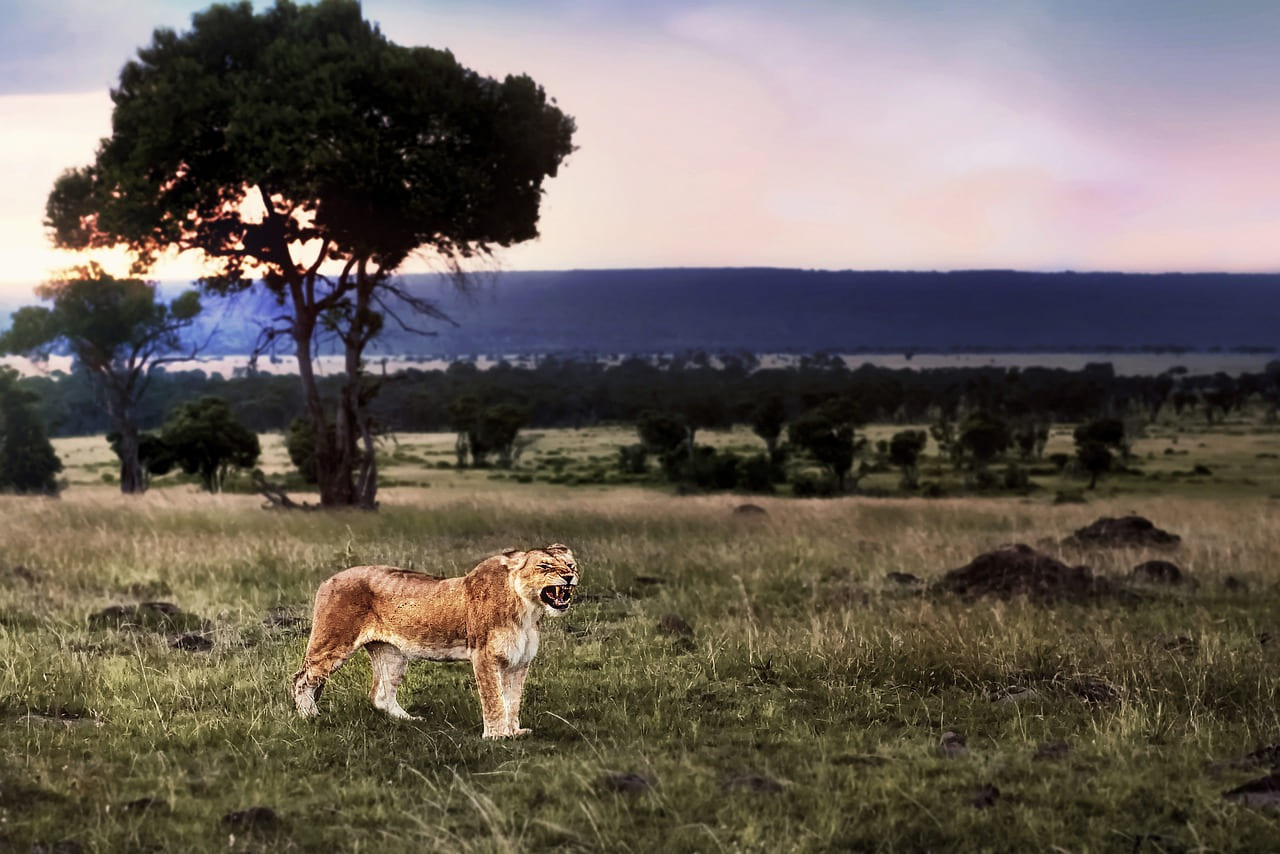
Lion
The lion (Panthera leo), often referred to as the "king of the jungle," is one of the most iconic predators in the animal kingdom. Native to Africa and parts of Asia, lions are unique among big cats for their social behavior. They live in groups called prides, which typically consist of related females, their cubs, and a dominant male or coalition of males. This social structure provides protection for their young and enhances their ability to hunt.
Lions are apex predators, relying on teamwork and strategy to hunt large prey such as zebras, wildebeests, and buffalo. Females, who are the primary hunters, use their speed and coordination to surround and take down their targets. Males, though less involved in hunting, play a vital role in protecting the pride from rival lions and other predators like hyenas.
Male lions are distinguished by their majestic manes, which vary in color and size depending on their age, genetics, and health. A thick, dark mane often indicates a strong and dominant male, making it an important factor in attracting mates. Lions communicate through a variety of vocalizations, including roars that can be heard up to 8 kilometers (5 miles) away.
Despite their regal status, lions face significant threats, including habitat loss, human-wildlife conflict, and poaching. Conservation programs such as protected reserves and anti-poaching efforts are critical to their survival. Today, lion populations are restricted to fragmented habitats, making their protection more important than ever.